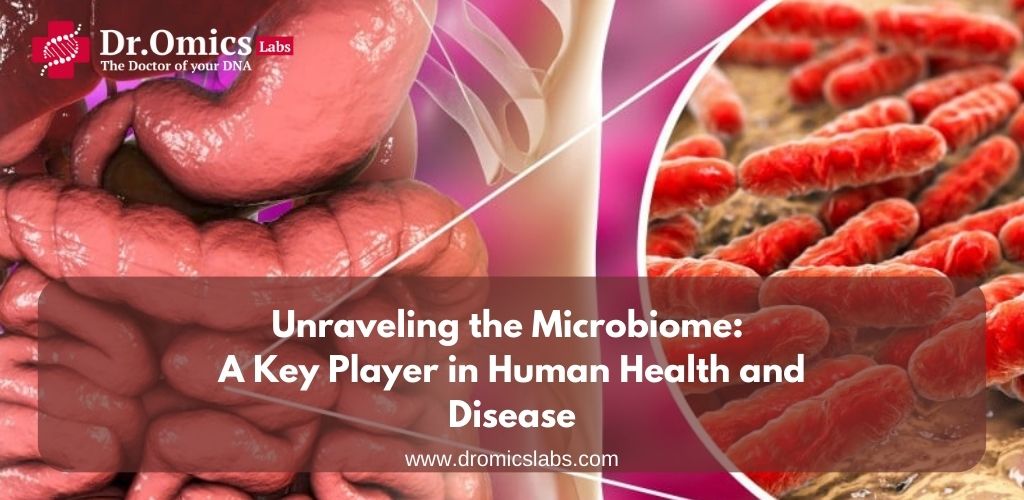The Future of Nutrigenomics: Personalized Diets Based on DNA
Advances in genomic science have given rise to nutrigenomics—a field at the intersection of nutrition and genetics that is revolutionizing how we approach our diets. By leveraging genetic testing for nutrition and analyzing an individual’s genetic predisposition to nutrients, researchers are now designing personalized nutrition strategies that promise to optimize health outcomes. This emerging science is not only reshaping dietary recommendations but also setting the stage for truly gene-based diets.
Scientific Foundations of Nutrigenomics
Nutrigenomics examines how food components interact with the genome, affecting gene expression and overall metabolic pathways. By investigating these interactions, scientists can pinpoint how individual genetic variations influence the metabolism of macronutrients, vitamins, and minerals. Some key concepts include:
- Single Nucleotide Polymorphisms (SNPs): Small genetic variations that can affect nutrient absorption and metabolism. One notable example involves the APOA2 gene polymorphism. Specific Single Nucleotide Polymorphisms (SNPs) in the APOA2 gene have been correlated with saturated fatty acid intake and body mass index. Individuals with certain variants may exhibit altered metabolic responses or satiety signals related to saturated fat consumption, potentially increasing their susceptibility to weight gain on diets high in these fats. This finding underscores the potential for tailoring dietary recommendations—specifically regarding fat intake—based on one’s APOA2 genotype, thereby optimizing metabolic health and reducing the risk of obesity-related conditions. [1]
- Epigenetic Modifications: Nutrients can trigger epigenetic changes, which are chemical modifications that affect gene expression without altering the DNA sequence. These changes can have lasting impacts on metabolism and disease risk. [2]
- Nutrigenetics: Nutrigenetics is often considered a key component of nutrigenomics, specifically investigating how individual genetic variations affect the body’s response to dietary components. This understanding is crucial for developing personalized meal plans tailored to an individual’s unique nutritional requirements and genetic makeup. [3]
While the foundational science of nutrigenomics highlights how genes and nutrients interact on a molecular level, recent technological advancements have enabled these insights to be translated into practical tools. The rise of affordable genetic testing and bioinformatics has paved the way for actionable dietary strategies based on an individual’s genetic makeup.
Advancements in DNA Diet Analysis
The integration of genetic testing for nutrition into everyday wellness practices is advancing rapidly. Modern tests analyze a myriad of genetic markers to determine:
- Nutrient Absorption Efficiency: Identifying genetic variants that affect the uptake of essential vitamins and minerals. Understanding how genetic variations influence our absorption and utilization of nutrients will enhance our capacity to evaluate the impact of dietary intake and design personalized nutrition programs to sustain health and prevent disease. [4]
- Metabolic Rates: Understanding how genes influence energy expenditure and fat storage, which is crucial for weight management.
- Resting Metabolic Rate (RMR): Genetic variations can influence the efficiency with which an individual’s body converts food into energy versus storing it as fat, contributing to variations in RMR.
- Thermic Effect of Food (TEF): It is plausible that differences in genetic makeup may influence the amount of energy expended during the digestion, absorption, and processing of nutrients (TEF), although the specific genetic determinants and their impact are areas of ongoing research.
- Energy Cost of Physical Activity: Research suggests a genetic contribution to overall energy expenditure, which can influence an individual’s daily energy burn and response to physical activity. [5]
The information derived from these genetic tests forms the basis for personalized dietary recommendations, often referred to in marketing as a DNA diet. With insights into an individual’s genetic predisposition to nutrients, healthcare professionals can recommend dietary adjustments that mitigate risk factors and enhance overall well-being.
Benefits of Personalized Nutrition
Adopting personalized nutrition through nutrigenomics offers compelling advantages:
- Tailored Dietary Strategies: By understanding specific genetic profiles, individuals can adopt personalized meal plans that maximize nutrient uptake and reduce food intolerances. This individualized approach is especially pertinent in addressing chronic diseases such as obesity, cardiovascular disease, and diabetes, where one-size-fits-all dietary guidelines have shown limitations. PN (personalized nutrition) enhances the precision of dietary interventions by tailoring recommendations based on individual genetic profiles, potentially leading to more effective management of chronic diseases such as obesity, cardiovascular disease, and diabetes. [6]
- Enhanced Performance: For athletes, studies indicate a strong heritability of power- and strength-related traits, with genetic factors accounting for up to 85% of the variation in these phenotypes. These traits include maximal isometric strength (force generated by muscles without any change in muscle length, such as holding a plank position), isotonic strength (muscle contractions that change muscle length while maintaining constant tension, like performing a bicep curl), and isokinetic strength (muscle contractions at a constant speed throughout the movement, typically achieved with specialized equipment). Gene-based diets can fine-tune energy levels, muscle recovery, and overall performance. [7]
Conclusion
The future of nutrigenomics promises a paradigm shift in how we approach our diets. Through genetic testing for nutrition and the development of gene-based diets, individuals can embrace personalized nutrition that caters specifically to their genetic makeup. As research continues to illuminate the complex relationship between food and genetics, the vision of optimized, tailored dietary strategies becomes increasingly attainable. The integration of advanced sequencing technologies, robust data analytics, and interdisciplinary research will undoubtedly cement nutrigenomics as a cornerstone of future preventive and therapeutic healthcare.
References
- Madeo, G., Donato, K., Micheletti, C., Cristoni, S., Miertus, S., Miertus, J., Veselenyiova, D., Iaconelli, A., Aquilanti, B., Matera, G., Connelly, S. T., & Bertelli, M. (2023). Nutrigenomics: SNPs Correlated to Lipid and Carbohydrate Metabolism. La Clinica terapeutica, 174(Suppl 2(6)), 200–208. https://doi.org/10.7417/CT.2023.2488
- Tiffon C. (2018). The Impact of Nutrition and Environmental Epigenetics on Human Health and Disease. International journal of molecular sciences, 19(11), 3425. https://doi.org/10.3390/ijms19113425
- Fenech, M., El-Sohemy, A., Cahill, L., Ferguson, L. R., French, T. A., Tai, E. S., Milner, J., Koh, W. P., Xie, L., Zucker, M., Buckley, M., Cosgrove, L., Lockett, T., Fung, K. Y., & Head, R. (2011). Nutrigenetics and nutrigenomics: viewpoints on the current status and applications in nutrition research and practice. Journal of nutrigenetics and nutrigenomics, 4(2), 69–89. https://doi.org/10.1159/000327772
- Niforou, A., Konstantinidou, V., & Naska, A. (2020). Genetic Variants Shaping Inter-individual Differences in Response to Dietary Intakes-A Narrative Review of the Case of Vitamins. Frontiers in nutrition, 7, 558598. https://doi.org/10.3389/fnut.2020.558598
- Jiang, L., Penney, K. L., Giovannucci, E., Kraft, P., & Wilson, K. M. (2018). A genome-wide association study of energy intake and expenditure. PloS one, 13(8), e0201555. https://doi.org/10.1371/journal.pone.0201555
- Singar, S., Nagpal, R., Arjmandi, B. H., & Akhavan, N. S. (2024). Personalized Nutrition: Tailoring Dietary Recommendations through Genetic Insights. Nutrients, 16(16), 2673. https://doi.org/10.3390/nu16162673
- Semenova, E. A., Hall, E. C. R., & Ahmetov, I. I. (2023). Genes and Athletic Performance: The 2023 Update. Genes, 14(6), 1235. https://doi.org/10.3390/genes14061235




